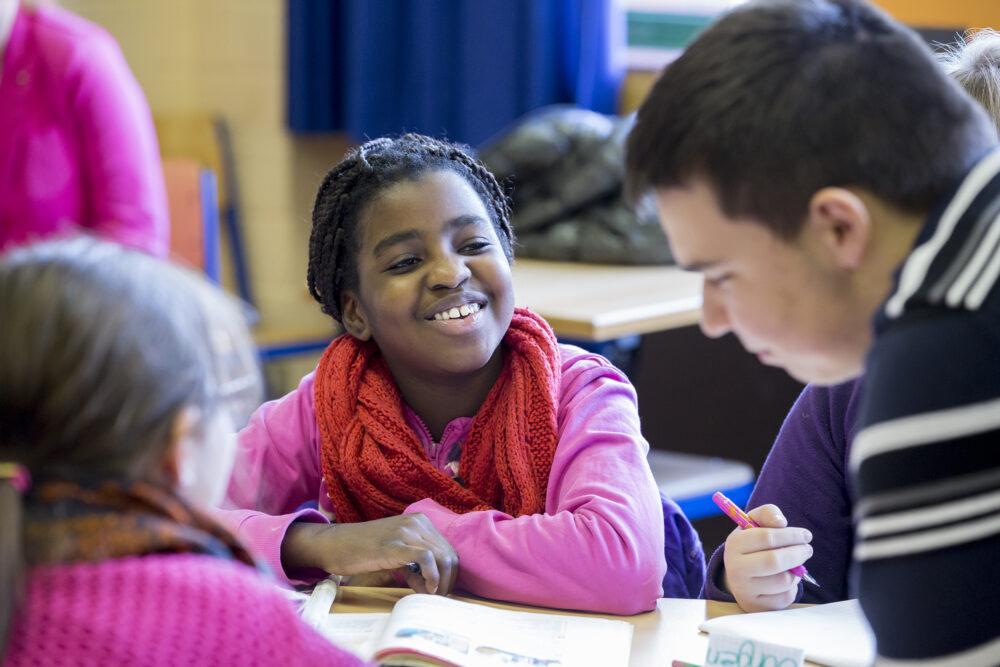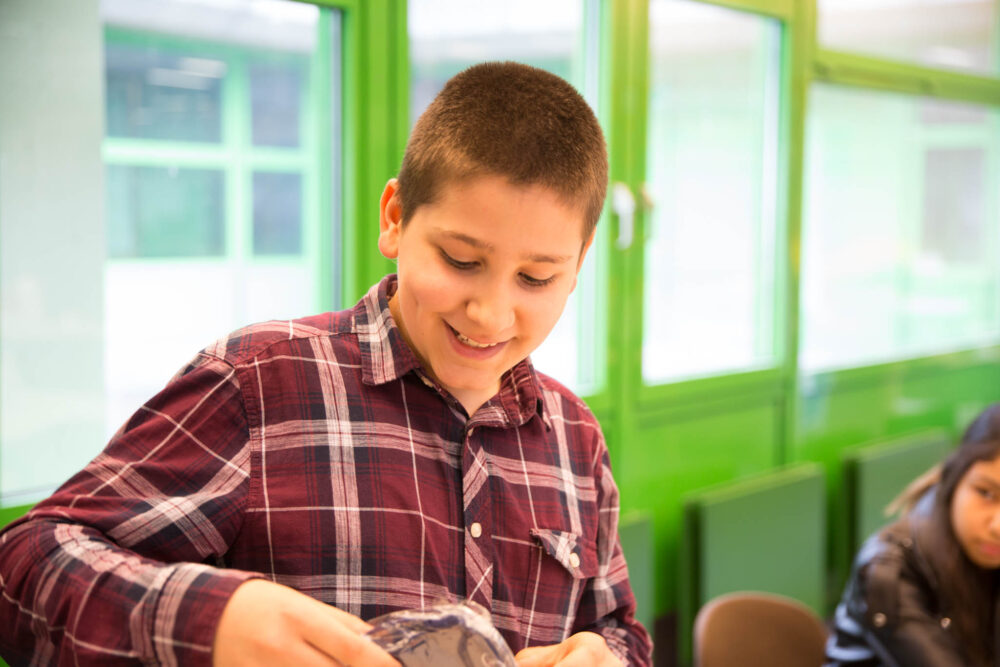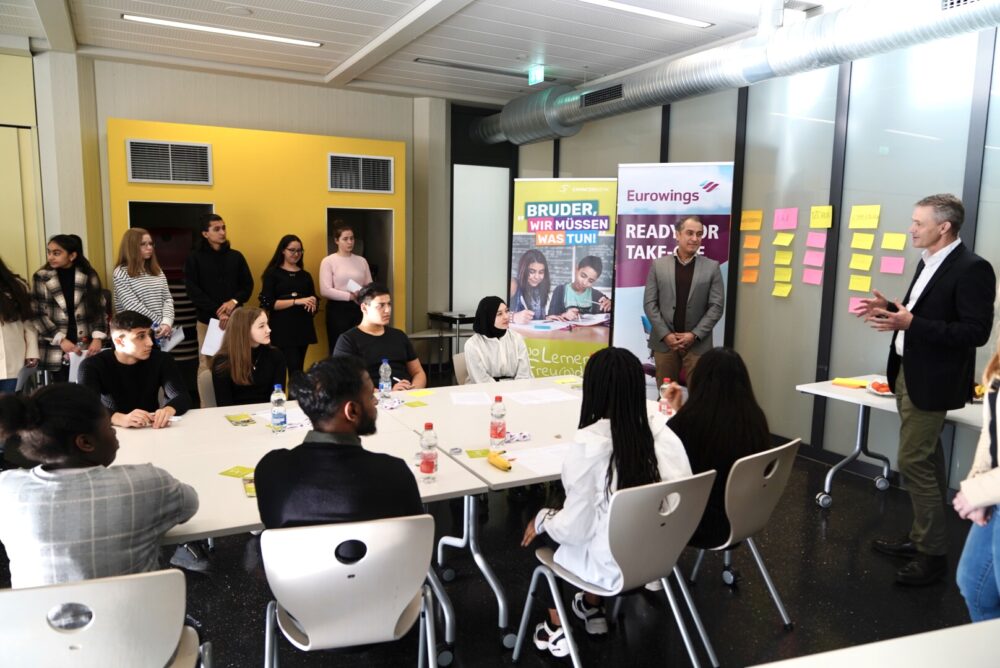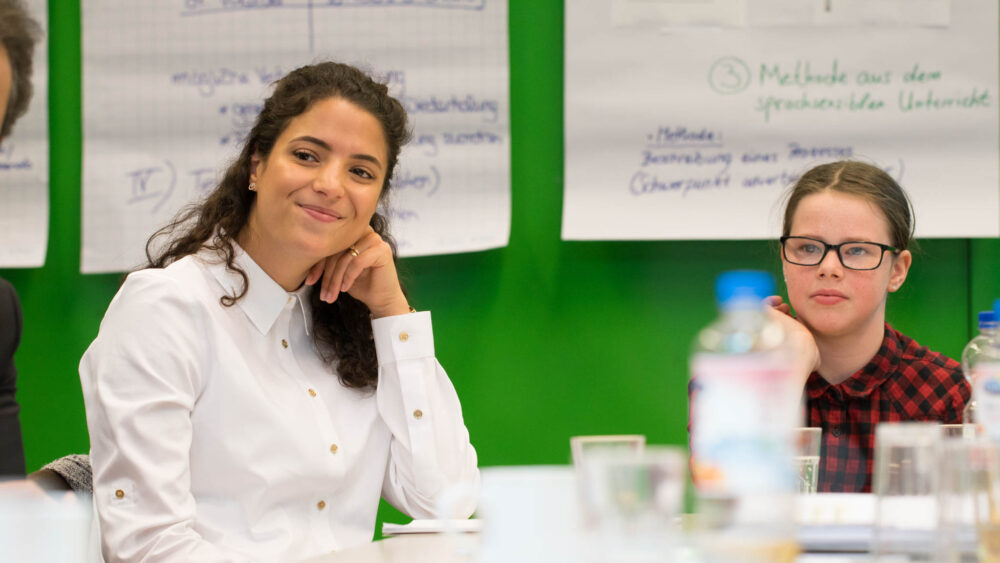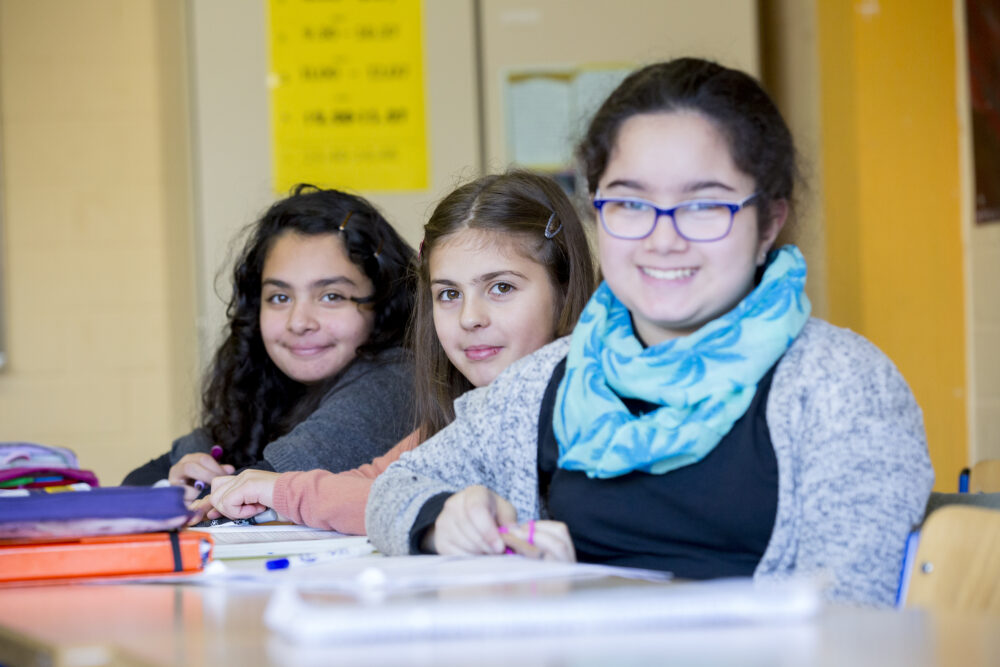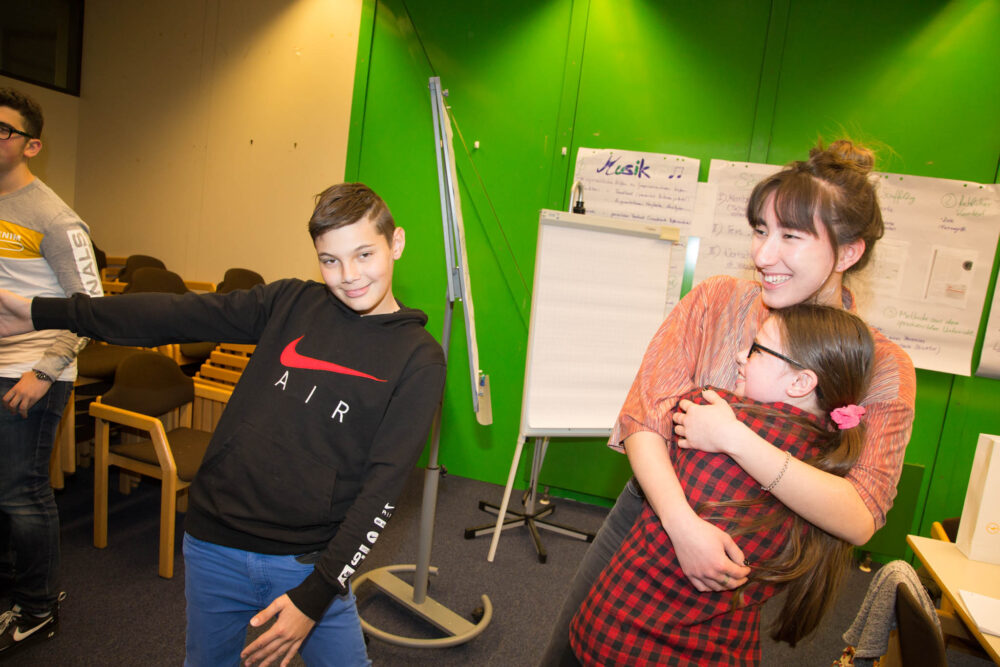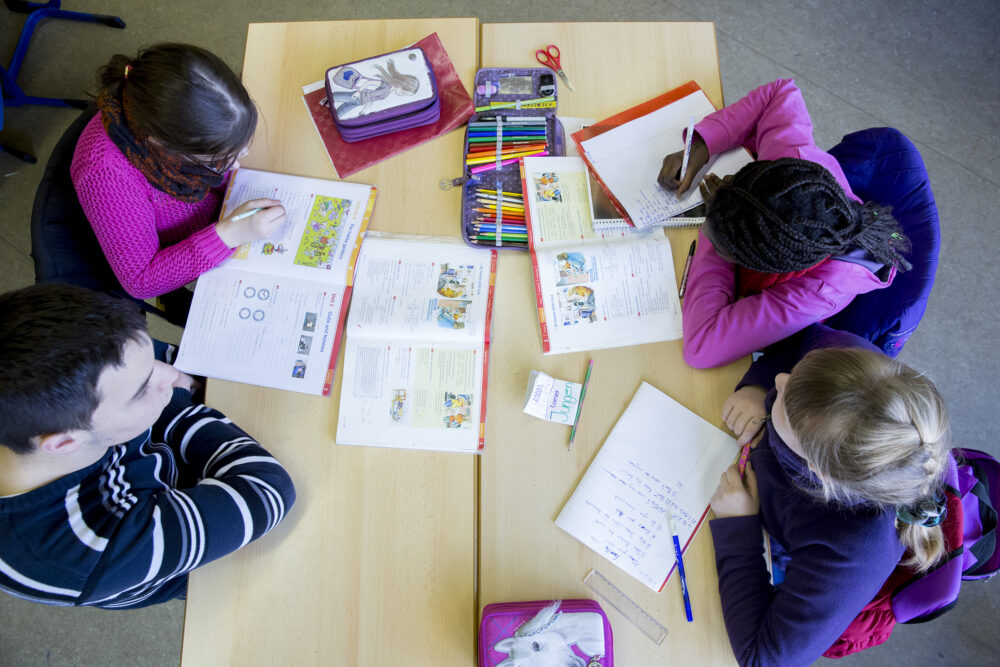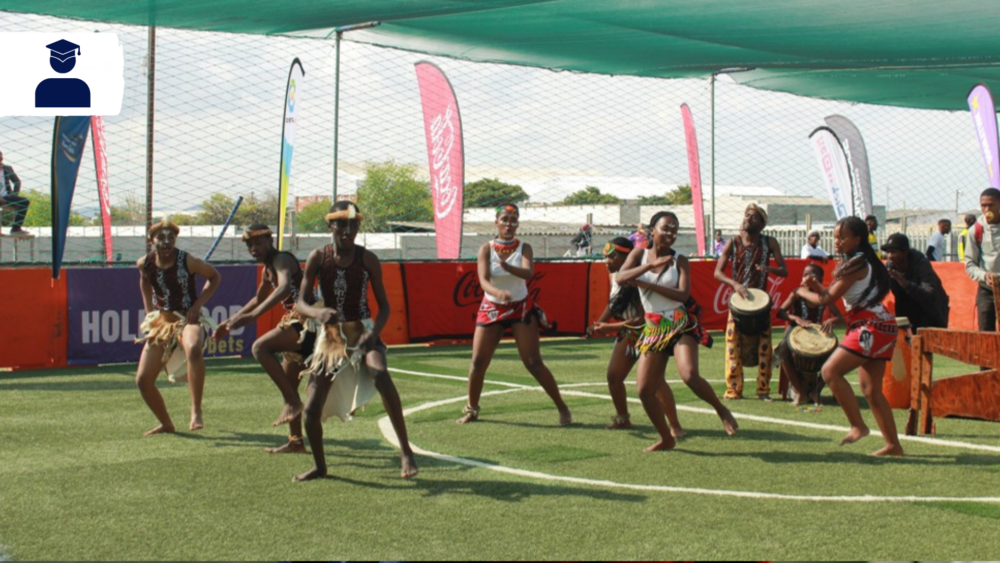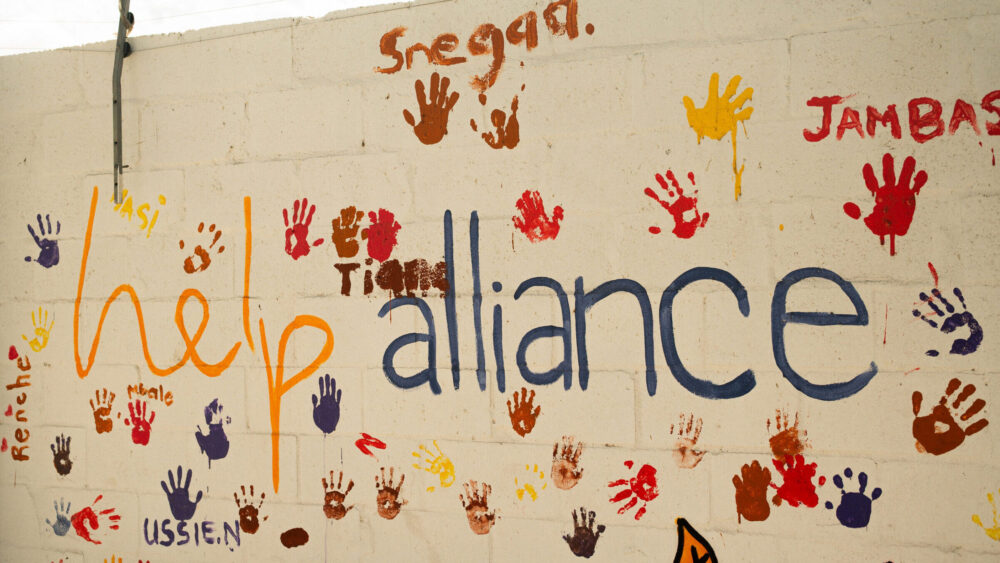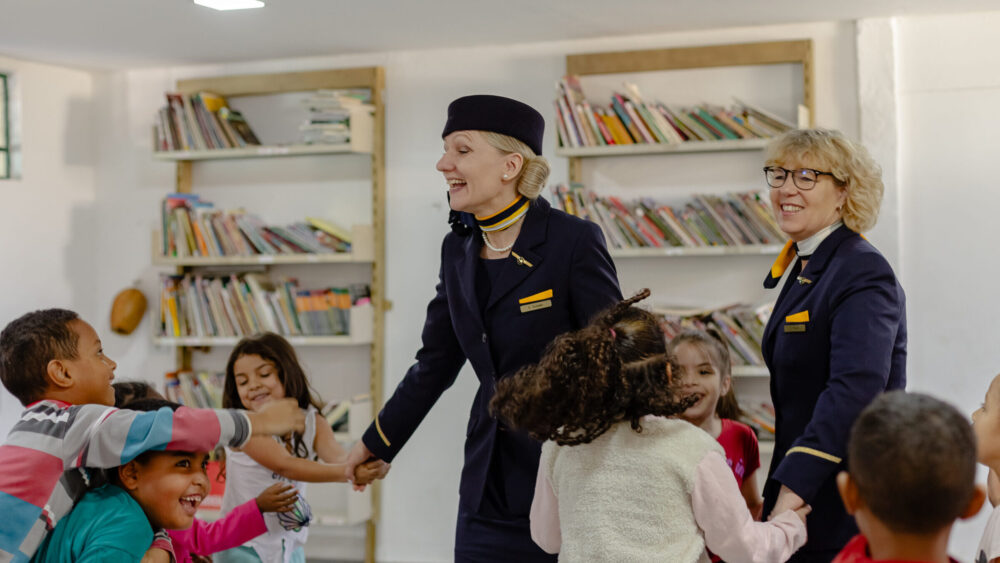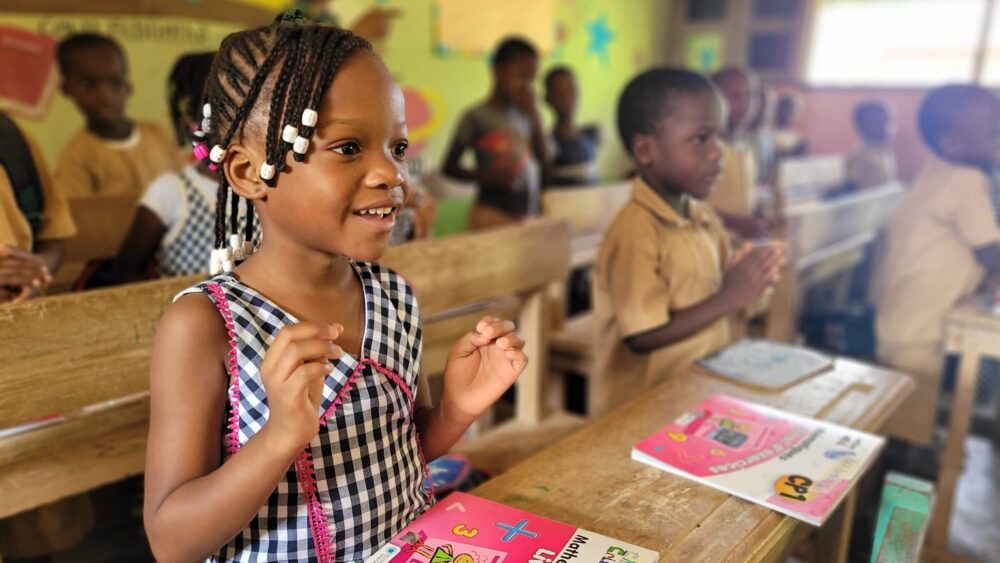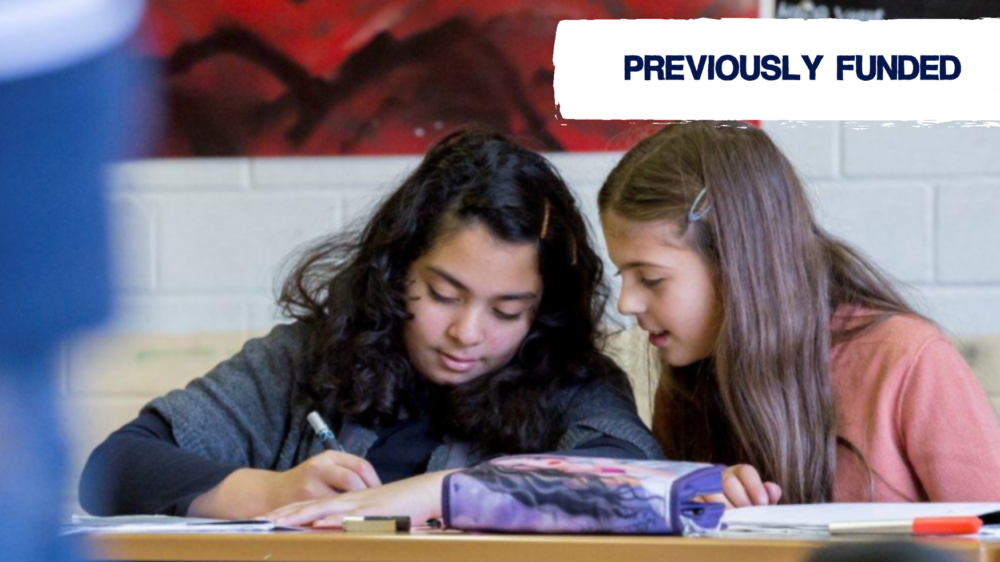
Educational Support, Düsseldorf
This project gives pupils from educationally disadvantaged or socially disadvantaged families the opportunity to develop their individual potential through an appropriate learning and support programme.
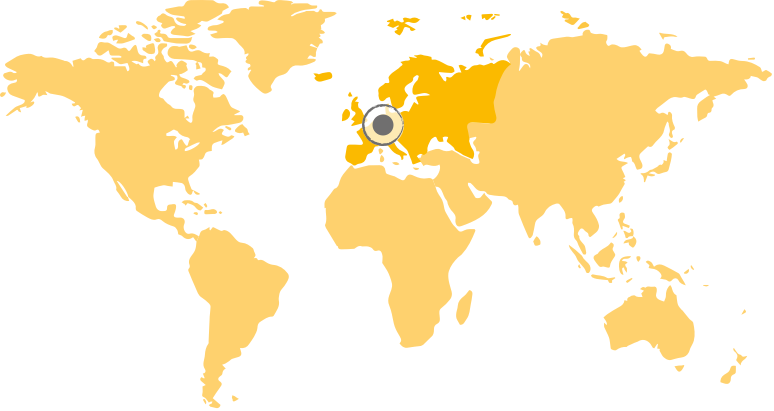
Project Background
According to current studies, the socio-economic background of students in Germany still strongly determines their educational success and thus their social participation and integration. An important indicator of this is the educational level of the parents: Children from socially weaker families have significantly worse chances of success at school in Germany than children whose parents went to University. In addition to parental qualifications, the migration background also has a major influence on the educational opportunities of young people, which are also influenced by the choice of school type. For example, the proportion of pupils with a migrant background at lower secondary schools is twice as high as at grammar schools.People with lower educational qualifications are at higher risk of unemployment and poverty. The structural disadvantage of people from socially weaker backgrounds in the German education system must be counteracted by giving all social classes the same chances of access and success in the education sector.
With this project, pupils from educationally disadvantaged or socially disadvantaged families at three schools in Düsseldorf are given the opportunity to develop their individual potential through an appropriate learning and support programme. At the same time, the project promotes the development of social commitment among all those involved, in addition to improving their technical and academic skills. As a result, the children have a greater chance of achieving better results at school.
Target Group
The project is aimed at children and young people from socio-economically weaker families with and without a migration background. After all, in addition to educational opportunities, the choice of school in Germany is also strongly determined by social background. In mathematics, ninth-graders from higher social classes have up to two years’ advantage over their classmates from educationally deprived families. In addition, children of parents with high degrees are much more likely to obtain academic certificates themselves than children of parents with lower degrees. Despite some initiatives, it is not yet possible to fully compensate for the disadvantages of pupils’ origins. This results from the fact that the parents’ origin or income is not only decisive for educational advancement, but rather for the future prospects and participation opportunities of young people.

